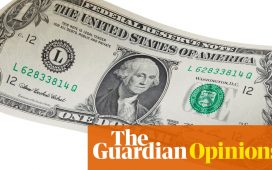What’s Up? (April 16-22)
Fox News Settles
Fox News’s highly anticipated trial with Dominion Voting Systems, the voting machine maker that accused the network of spreading lies about the 2020 presidential election on its programs, ended before it began. In an unexpected twist in the courtroom on Tuesday — after jurors had been selected and opening statements delayed — Fox News agreed to a $787.5 million settlement. Dominion had been seeking $1.6 billion in damages. But even at less than half that amount, the settlement is still one of the largest ever in a defamation case. Though Fox did not apologize for its falsehoods, the company acknowledged in a statement that “certain claims” it made about Dominion were false. And Fox may face more consequences; the cable news network remains entangled in multiple legal battles, including a defamation suit from another election technology company, Smartmatic, which is seeking an even larger amount: $2.7 billion. Dominion also has other pending litigation against Rudolph W. Giuliani and One America News Network related to false claims of election fraud.
A Looming Strike in Hollywood
Thousands of television and film writers are ready to walk on the picket lines if they can’t reach an agreement with Hollywood’s biggest studios by the end of the month. Last week, more than 9,000 of those writers, represented by the Writers Guild of America, voted to authorize a strike, giving union leaders the ability to call for a walkout when the writers’ contract expires on May 1. Writers say their pay and working conditions have not kept pace with the streaming-era boom. The Alliance of Motion Picture and Television Producers, a trade association that bargains on behalf of Hollywood production companies, said its goal was to “reach a fair and reasonable agreement.” In the meantime, Hollywood executives have begun to prepare for the possibility of a strike, which would first disrupt late-night television shows and then scripted television.
Tax Credit Confusion
Cashing in on the federal tax credits promised to buyers of electric vehicles became more complicated last week, when the Treasury Department placed additional limitations on which models qualify. Caveats released in August said vehicles and plug-in hybrids assembled outside North America were not eligible for the $7,500 credit. Now, a new policy from the department requires that a certain percentage of the components and minerals in a car’s battery be sourced in the United States or from its trade allies. That means just 11 electric cars from a handful of automakers qualify for the full tax credit, while several others meet the standard for a partial $3,750 credit. The list of eligible vehicles is expected to grow as carmakers fine-tune their supply chains and catch up with demand. That could take a while, though: Automakers have been struggling to scale up their production because of problems with sourcing the materials they need.
What’s Next? (April 23-29)
Checking In on a Struggling Bank
Last month, 11 of the country’s largest banks came together to inject $30 billion into First Republic, a midsize bank that teetered on the brink of collapse after the failures of two other banks had sent shock waves through the banking sector. So, did it work? When the bank reports its quarterly earnings this week, analysts expect to see an enormous flight of deposits — that is, customers pulling their money from the bank — and losses. If there is no deal to sell a stake in First Republic or a plan to shepherd it through these hard times, its stock is likely to plummet and add to the pressure on the bank.
Taking the Economy’s Measure
After satisfying one conventional definition of a recession last year, gross domestic product, a key measure of economic output in the United States, returned to a period of growth, showing resilience in the face of a continuing pandemic, the war in Ukraine and stubborn inflation. But the durability of the economy was tested once again by the recent banking crisis, which some analysts believe may have put a dent in the country’s recovery. Goldman Sachs last week lowered its G.D.P. forecast for 2023, citing concerns that banks will tighten their lending standards in an effort to keep more cash on hand. Given the role that small- and midsize banks play in the economy, Goldman’s analysts said, that reaction could be a drag on overall growth, which has already been affected by the Federal Reserve’s efforts to slow inflation by raising interest rates.
Big Tech’s Report Card
Tech companies like Meta and Alphabet are expected to put a positive spin on the bleak mood looming lately over the industry when they report quarterly earnings this week. Meta’s report, for example, is likely to mention its latest plans to cut 10,000 jobs as it seeks to make 2023 the “year of efficiency.” In November, the social media company laid off more than 11,000 workers, or about 13 percent of its work force at the time. And Alphabet, Google’s parent company, last quarter reported its fourth consecutive decline in profits amid a slowdown in digital advertising. To soften potentially grim tidings, these companies and their rivals are likely to emphasize their new ventures in artificial intelligence.
What Else?
David’s Bridal, the retailer that claims to sell one out of three wedding dresses in the United States, filed for bankruptcy on Monday for the second time in five years. Inflation slowed last month in Britain, according to a report on Wednesday, but it’s still in the double digits. And on Thursday, BuzzFeed announced that it was shutting down its news operation and laying off 15 percent of its staff.






